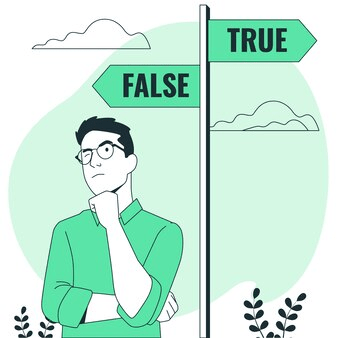Decision anxiety is that knot in your stomach you get when faced with a choice. It’s like your brain goes into overdrive, worrying about making the wrong decision. This can happen for anything, big or small, from picking a movie to making a career change. It can lead to overthinking and analysis paralysis, leaving you feeling frozen and unable to decide. Seeking support through counseling or therapy can help manage decision anxiety by developing coping strategies and building confidence in decision-making abilities.
what is an example of Decision Anxiety
An example of decision anxiety could be when a student is trying to choose a college major. They might feel overwhelmed by the numerous options available and the potential impact that their decision could have on their future career. The student may experience anxiety because they fear making the wrong choice and ending up in a field that doesn’t align with their interests or skills.
What Causes Decision Anxiety?
When facing decision anxiety or other mental health issues, connecting with a licensed mental health counselor “Online therapist India” can be an important first step toward support and healing.
-
Fear of Failure: Anxiety about making the wrong decision and facing negative consequences.
-
Perfectionism: Setting excessively high standards and fearing imperfect outcomes.
-
Overthinking: Constantly analyzing options and outcomes, leading to mental exhaustion.
-
Lack of Confidence: Feeling uncertain about one’s ability to make good decisions.
-
Previous Negative Experiences: Past experiences of failure or criticism influencing present decision-making.
-
High-Stakes Decisions: Pressure associated with important or life-changing decisions.
-
Too Many Options: Feeling overwhelmed by numerous choices, leading to decision paralysis.
-
Desire to Please Others: Fear of disappointing or upsetting others with one’s choices.
-
Uncertainty: Feeling unsure about the future consequences of decisions.
-
Time Constraints: Limited time to make a decision, causing stress and rush.
-
Conflict of Values: Inner conflict between personal values and external expectations.
-
Risk Aversion: Fear of taking risks or stepping out of comfort zones.
-
Lack of Information: Insufficient information to make a well-informed decision.
-
Anxiety Disorders: Generalized anxiety disorder or specific phobias related to decision-making.
-
Self-Doubt: Low self-esteem and doubts about personal judgment.
-
Cultural or Family Influences: Pressure from cultural or familial expectations impacting decision-making processes.
Counselors “Online therapy” use their experience and education to help individuals cope with anxiety and navigate daily challenges more effectively.
How Can We Overcome Decision Anxiety?
Overcoming decision anxiety involves adopting specific strategies to manage fears and build confidence in decision-making.
-
Break Down Decisions: Divide complex decisions into smaller, manageable steps.
-
Set Realistic Expectations: Accept that not all decisions will be perfect and allow room for mistakes.
-
Gather Information: Seek relevant facts and insights to make informed choices.
-
Identify Core Values: Align decisions with personal values and priorities.
-
Limit Choices: Narrow down options to reduce overwhelm and simplify decision-making.
-
Practice Mindfulness: Stay present and focus on the current decision without overthinking future outcomes.
-
Set Decision Deadlines: Avoid prolonged indecision by setting reasonable timeframes.
-
Seek Input from Others: Consult trusted friends, family, or colleagues for perspectives and support.
-
Use Decision-Making Techniques: Utilize tools like pros and cons lists or decision matrices.
-
Visualize Positive Outcomes: Imagine successful outcomes to boost confidence and reduce anxiety.
-
Challenge Negative Thoughts: Replace self-doubt with positive affirmations and realistic thinking.
-
Take Small Risks: Gradually step out of comfort zones to build resilience to uncertainty.
-
Practice Self-Care: Prioritize rest, nutrition, and relaxation to manage overall stress levels.
-
Seek Professional Help: Consult an online counselor or mental health expert for personalized guidance.
-
Learn Coping Skills: Develop techniques like deep breathing or progressive muscle relaxation to manage anxiety.
-
Embrace Imperfection: Emphasize progress over perfection and celebrate decision-making efforts.
In conclusion, decision anxiety is a common challenge that can significantly impact mental well-being and daily functioning.

